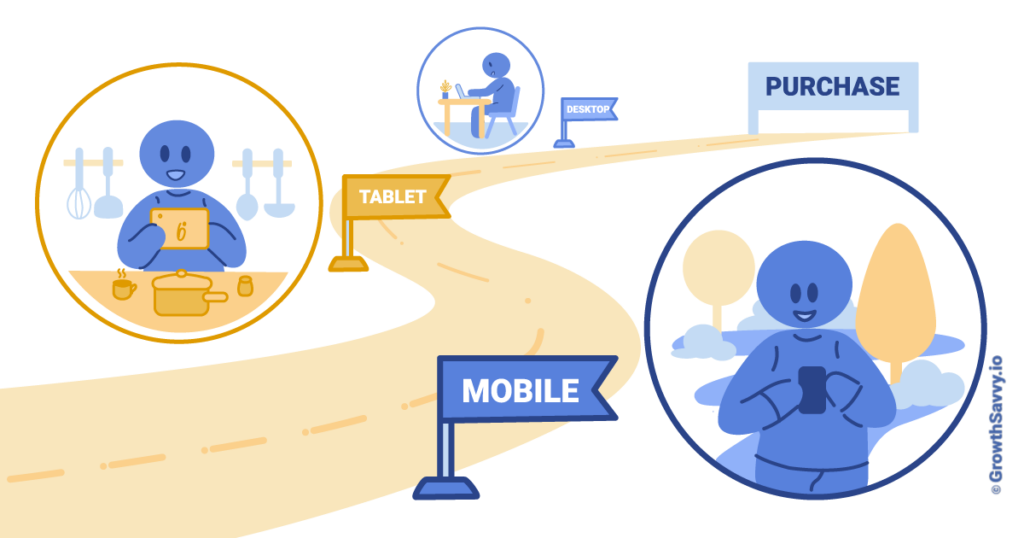For those of you that use social media applications such as Instagram and Snapchat, have you ever wondered about the advertisements you see and why you see them? Have you ever noticed that the advertisements you see on social media are usually directly related to your interests? Even in some cases for me, I find myself searching up a product to buy on the internet, only for that product to be the first thing that pops up when I open a social media platform. What I have described above may sound like a very familiar experience to many, which has made me wonder if there are any further impacts that this obvious cross platform tracking has on our day to day lives. While this technology may seem like it is benefitting all parties by giving you content that you want to see, there are security and privacy issues that also must be addressed. With a rapid advance in technology and the use of social media, there have been many roles assigned to catering to a target audience. From data brokers to cross platform tracking, what may seem to you like a coincidence is actually a well thought out and articulated plan to help companies reach target performance through the outreach of social media. In summary, this inquiry post will be focusing on digital surveillance that occurs through social media.
The first topic within the grand scope of digital surveillance through social media I have chosen to research is the practice of data brokers. According to an article done by the University of Winnipeg, a data broker can be described as an individual or company that gathers data on individuals such as browser activity, location and online buying patterns. Furthermore, highly private data such as age, race, and gender are also accessible. Once these data brokers have collected this information, they sell it to different bodies such as advertisers. In the context of social media, data brokers will sell information to different companies so they can address highly targeted ads through social media, as well as optimize content feeds so users are seeing stuff they are more likely to buy. In this context of privacy and security, there are many issues surrounding this that come up. For starters, there is a huge lack of communication, such as users being unaware that they are consenting to data collection. Secondly, private and sensitive information is stored and collected then sold, sharing information about individuals that they may not want to be shared. Lastly, the industry is said to be under regulated, as the practices that data brokers carry out are often in front of outdated laws.
Additionally, another method of digital surveillance that occurs through social media is cross platform tracking. Cross platform tracking can be described as tracking what users do across different platforms. Even when users switch devices, cross platform tracking still has the ability to track across multiple devices. Through doing this, it gives companies marketing and personalization advantages because they are able to know what users are doing and what content they gravitate towards. Even though it may give companies an advantage in their business operations with being able to optimize social media feeds in efforts to get users to buy their products, there are also privacy concerns surrounding this. Many people are unaware that cross platform tracking occurs, and do not appreciate that their every move on the internet has the potential of being tracked.
Circling back to my main goal of my deep dive inquiry which is researching digital surveillance with an end goal of determining ethical use of surveillance in terms of privacy and security, I believe that this subsection of my inquiry is truly up to individual opinion. On one hand of the argument, social media digital surveillance can benefit the user, as the user may be happy with their optimized feeds specifically catered to what they want to see. In this scenario, individuals may believe that the use of this tracking is ethical in the better interest of everyone involved. On the other hand, individuals who believe that this surveillance is over the top and a breach of privacy may think that it is unethical. In my personal opinion, it is a bit off putting that my personal information is being tracked, stored, and sold. Despite this, I am happy that the information is being used to show me stuff that I like. In the grand scheme of things, I am just one individual out of a bunch that are also getting their information tracked, so I believe that my individual information is insignificant.
After reading my blog post, what do you think about this topic. Are you for or against digital surveillance impacting your social media experience? Do you believe that individuals should have more of a clear choice to be tracked or not? Let me know!

@GrowthSavvy.io
Sources/Articles Consulted
https://piwik.pro/blog/cross-platform-analytics/